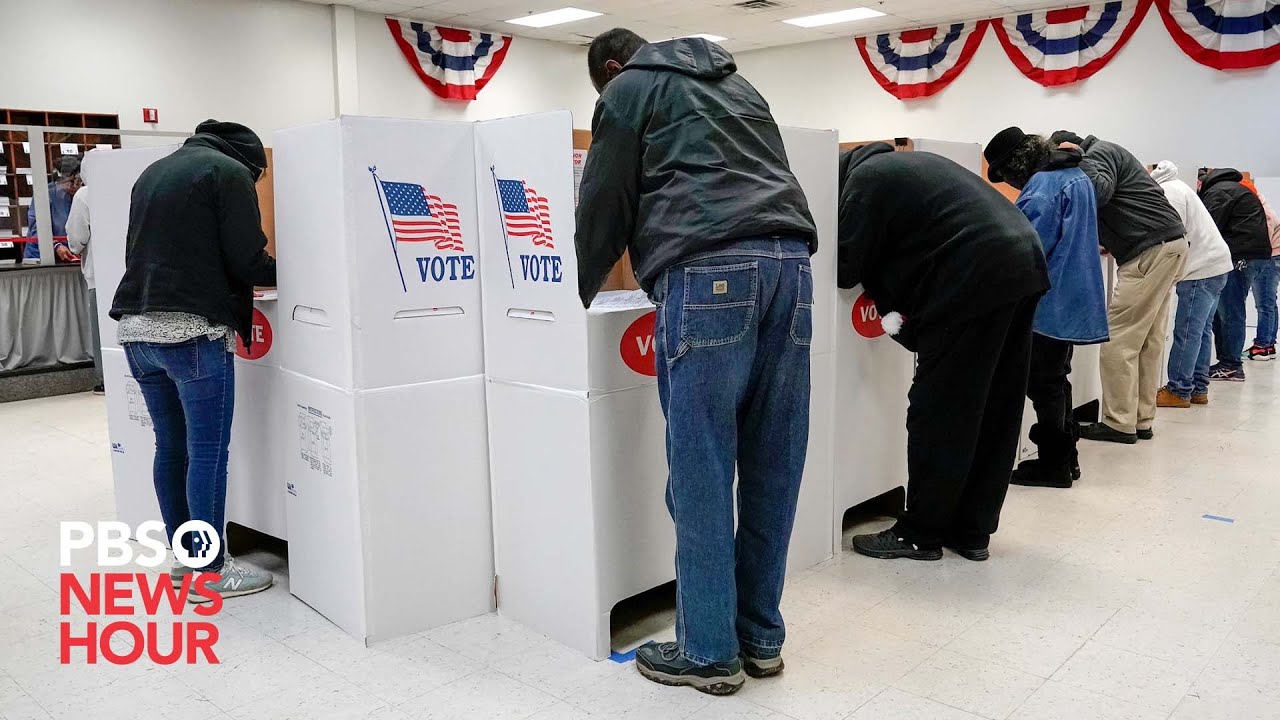Control Of Congress Hangs In Balance - Democrats Avoid Midterm Defeat
Control of Congress hangs in the balance on Wednesday, November 9, as Democrats showed surprising strength, defeating Republicans in a series of competitive races and defying expectations that high inflation and President Joe Biden’s low approval ratings would drag the party down.
Author:Darren McphersonReviewer:Camilo WoodNov 09, 2022107.5K Shares1.7M Views

Control of Congress hangs in balanceon Wednesday, November 9, as Democrats showed surprising strength, defeating Republicans in a series of competitive races and defying expectations that high inflation and President Joe Biden’s low approval ratings would drag the party down.
In the most encouraging news for Democrats, John Fetterman successfully flipped Pennsylvania's Republican-controlled Senate seat, which is critical to the party's hopes of retaining control.
After the US midterm elections revealed that Americans are unwilling to give either party a strong political mandate, Joe Biden and the Democrats risked losing control of Congress to the Republicans.
The outcome of the vote was reassuring to Biden but a setback to Donald Trump's presidential ambitions, who was counting on victories by Republican candidates he endorsed to power a new run for the White House in 2024.
US Election - Control Of Congress Hangs In Balance

Candidates make closing arguments to voters as control of Congress hangs in balance
Republicans and Democrats are locked in a tight race for control of the US Congress a day after the midterm elections. With votes still being counted, Republicans are favorites to win the House of Representatives, but the Senate race is razor-thin.
Democrats have won a key Senate seat in Pennsylvania, but two other races are too close to call, with one set for a run-off vote next month. Voters were most concerned about the economy and abortion.
Republicans should have benefited from this, but they have not seen the "red wave" of victories that they had hoped for.
The United States Congress is divided into two chambers: the House of Representatives and the Senate. All 435 House of Representatives seats and 35 of the 100 Senate seats were up for grabs. Members of the House represent their constituents, while Senators represent the interests of their respective states.
The Outcome Of Election Races
The outcome of the House and Senate races will determine the future of Biden's agenda and serve as a referendum on his administration as the country grapples with record-high inflation and concerns about the country's direction.
Republican control of the House would almost certainly result in a flurry of investigations into Biden and his family, while Republican control of the Senate would limit the president's ability to make judicial appointments.
The ruling party almost always suffers losses in the president's first midterm elections, but Democrats hope that outrage over the Supreme Court's decision to gut abortion rights will energize their voters enough to defy history.
Fetterman faced questions about his fitness for office in Pennsylvania after suffering a stroke just days before the state's primary. Nonetheless, he defeated Republican Dr. Mehmet Oz in a major rebuke to Trump, whose endorsement helped Oz win the Republican primary.
Critical Races
In one of the most closely watched Senate races in recent memory, left-wing Democrat John Fetterman defeated Trump-backed celebrity doctor Mehmet Oz in Pennsylvania.
Another important Senate race in Georgia, between Democrat Raphael Warnock and Republican challenger Herschel Walker, will go to a run-off in four weeks because neither candidate received more than 50% of the vote.
Other key Senate races in Arizona and Nevada are also still undecided. According to CBS News, Arizona is leaning Democratic, but Nevada remains a toss-up as more votes are counted.
It means that the outcome of which party controls the chamber of Congress may not be known for days, if not weeks. Several states also held elections for state governors. Republicans have retained control of the governorships in Texas, Florida, and Georgia.
Former President Donald Trump, who is expected to announce his presidential candidacy in 2024, has seen some of his endorsed candidates fail.
Conclusion
Republicans still had a chance to take control of Congress as votes were being counted across the country. However, the results were encouraging for Democrats, who had expected sweeping defeats and raised concerns about the size of Republicans' governing majority if they won the House.

Darren Mcpherson
Author
Darren Mcpherson brings over 9 years of experience in politics, business, investing, and banking to his writing. He holds degrees in Economics from Harvard University and Political Science from Stanford University, with certifications in Financial Management.
Renowned for his insightful analyses and strategic awareness, Darren has contributed to reputable publications and served in advisory roles for influential entities.
Outside the boardroom, Darren enjoys playing chess, collecting rare books, attending technology conferences, and mentoring young professionals.
His dedication to excellence and understanding of global finance and governance make him a trusted and authoritative voice in his field.

Camilo Wood
Reviewer
Camilo Wood has over two decades of experience as a writer and journalist, specializing in finance and economics. With a degree in Economics and a background in financial research and analysis, Camilo brings a wealth of knowledge and expertise to his writing.
Throughout his career, Camilo has contributed to numerous publications, covering a wide range of topics such as global economic trends, investment strategies, and market analysis. His articles are recognized for their insightful analysis and clear explanations, making complex financial concepts accessible to readers.
Camilo's experience includes working in roles related to financial reporting, analysis, and commentary, allowing him to provide readers with accurate and trustworthy information. His dedication to journalistic integrity and commitment to delivering high-quality content make him a trusted voice in the fields of finance and journalism.
Latest Articles
Popular Articles
